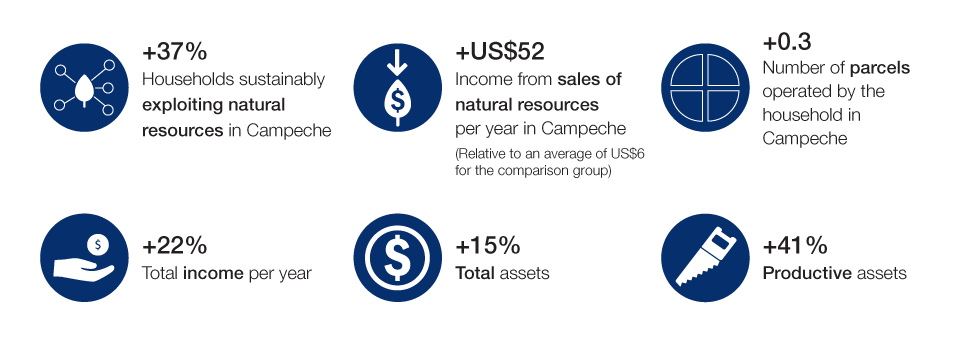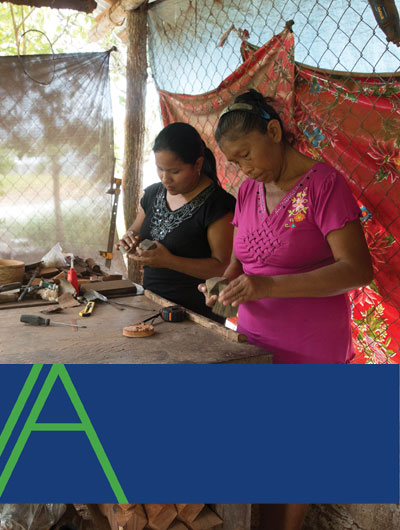Impact Assessment: Community-based Forestry Development Project in Southern States (DECOFOS)
Impact Assessment: Community-based Forestry Development Project in Southern States (DECOFOS)
Deforestation and unsustainable management practices have had a significant impact on the livelihoods of poor rural communities in the forest areas of Campeche, Chiapas and Oaxaca states in Mexico. The Community-based Forestry Development Project in Southern States introduced a range of initiatives designed to address deforestation and forest degradation by improving the capacity of local people to manage forest resources more sustainably, and by helping them diversify their income-generating activities.
Community members were trained in natural resource management, conservation and climate adaptation practices. The project also provided technical and financial support for participants to establish micro-entrepreneurial projects and small businesses in eco-tourism, and in sustainable production of timber and non-timber forest products. All project activities emphasized the inclusion of young people, women and other vulnerable groups, such as individuals without land rights (avecindados). Project activities were aligned to local needs and conditions in the three states, reflecting their topographical, agro-ecological and socio-economic differences. DECOFOS underwent a rigorous end-line impact assessment using quantitative and qualitative data from 2200 households.
Key impact estimates
An impact estimate is calculated as the difference in mean outcomes between the treatment group (project participants) and the comparison group (non-participants).
DECOFOS impacted 180,000 rural people, allowing them to increase their incomes by more sustainably exploiting natural resources in their local forests and to become less likely to be affected by droughts and other climate-related shocks. Key figures include:

Main lessons
This impact assessment has yielded the following lessons for policy and practice:
- Focused project activities that took advantage of existing resources and capital were more effective in transforming rural economies and achieving positive environmental impact. For example:
- In Campeche, where communities own large forested areas, activities focused on strengthening the sustainable use of forest resources, which led to stronger resilience to droughts and other climate shocks.
- In Chiapas, where opportunities to diversify livelihoods are more readily available, the project focused on improving off-farm business activities, which resulted in an increase in the number of small businesses and contributed to higher incomes among participants
- In Oaxaca, where project activities were spread equally between sustainable use of natural resources and strengthening business enterprises, the impacts on income and resilience were weaker.
